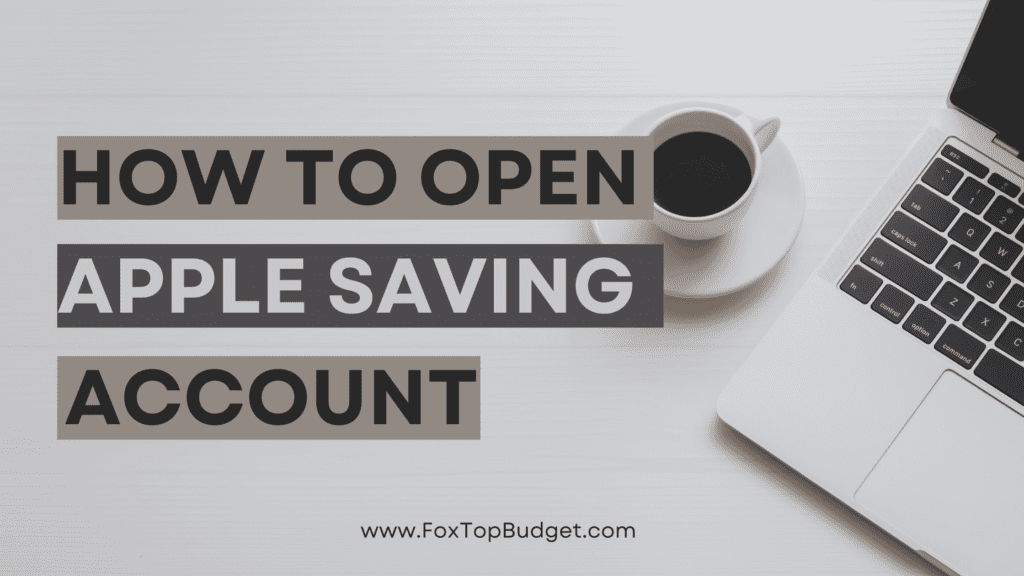As you embark on your financial journey, it’s essential to have a solid plan in place to ensure your long-term financial well-being.

Top Financial Planning Tips for Beginners
Whether you’re just starting out or looking to refine your approach, these top financial planning tips for beginners will provide you with the guidance and insights you need to Make wise choices and reach your financial objectives. Make wise choices and reach your financial objectives.
Understand Your Current Financial Situation
The first step in effective financial planning is to have a clear understanding of your current financial situation. This involves taking a comprehensive look at your income, expenses, assets, and liabilities.
Assess Your Income
Begin by calculating your total monthly income from all sources, including your primary job, side hustles, investments, or any other sources of revenue. This will give you a clear picture of the resources you have available to work with.
Track Your Expenses
Next, track your expenses, both fixed and variable. Fixed expenses are those that remain relatively consistent, such as rent, mortgage payments, or car loans. Variable expenses are those that fluctuate, such as groceries, utilities, or entertainment. By understanding your spending patterns, you can identify areas where you can potentially cut back or optimize your spending.
Evaluate Your Assets and Liabilities
Take stock of your assets, which may include savings accounts, investments, real estate, or other valuable possessions. Also, make a list of your liabilities, such as credit card balances, student loans, or any other outstanding debts. This will help you understand your net worth and identify areas where you may need to focus your efforts.
Create a Personal Balance Sheet
Consolidate all the information you’ve gathered into a personal balance sheet. This document will provide you with a clear snapshot of your financial standing, allowing you to identify areas of strength and areas that need improvement.
read more: jio financial services share price
Establish Financial Goals
With a clear understanding of your current financial situation, the next step is to establish your financial goals. These goals have to be SMART—specific, measurable, achievable, and time-bound.
Short-Term Goals
The things you want to accomplish in the next one to three years are considered short-term objectives.
These may include building an emergency fund, paying off high-interest debt, or saving for a down payment on a home.

Mid-Term Goals
Mid-term goals are those that you plan to achieve within the next three to five years. These may include saving for a major purchase, such as a new car or a vacation, or contributing to a retirement account.
Long-Term Goals
Long-term goals are those that you aim to achieve in the next five to ten years or beyond. These may include saving for retirement, funding your children’s education, or building wealth through investments.
Prioritize Your Goals
Once you’ve identified your financial goals, prioritize them based on their importance and the timeline for achieving them. This will help you allocate your resources more effectively and ensure that you’re making progress towards your most critical objectives.
Create a Comprehensive Budget
A well-designed budget is the foundation of effective financial planning. By creating a budget, you can ensure that your spending aligns with your financial goals and priorities.
Categorize Your Expenses
Start by categorizing your expenses into different categories, such as housing, transportation, food, utilities, and entertainment. This will help you identify areas where you can potentially cut back or optimize your spending.
Allocate Your Income
Next, allocate your income to each expense category, ensuring that you’re saving and investing a portion of your income towards your financial goals. A common rule of thumb is the 50/30/20 rule, where you allocate 50% of your income to essential expenses, 30% to discretionary expenses, and 20% to savings and investments.
Track and Adjust Your Budget
Monitor your actual expenditure on a regular basis in relation to your planned amounts, and modify as necessary.
This will help you stay on track and identify areas where you may need to make changes to your spending habits.
Use Budgeting Tools
There are numerous budgeting tools and apps available that can make the process of creating and managing your budget easier. Consider using a tool that aligns with your financial needs and preferences, such as Mint, YNAB, or Goodbudget.
Prioritize Debt Repayment
One of the biggest roadblocks to reaching your financial objectives may be debt. Prioritizing debt repayment is crucial to improving your overall financial well-being.
Identify and Prioritize Your Debts
Start by making a list of all your outstanding debts, including credit card balances, student loans, personal loans, and any other forms of debt. Prioritize your debts based on the interest rates, with the highest-interest debts being the top priority.
Develop a Debt Repayment Plan
Create a plan to systematically pay off your debts, starting with the highest-interest debt first. This strategy, known as the “debt snowball” or “debt avalanche” method, can help you save on interest charges and accelerate your debt repayment.
Explore Debt Consolidation
If you have multiple high-interest debts, consider consolidating them into a single, lower-interest loan. This can simplify your repayment process and potentially save you money on interest charges.
Avoid Incurring New Debt
While you’re focused on paying off existing debts, be mindful of not incurring new debt. Avoid using credit cards for unnecessary purchases and strive to live within your means.
Build an Emergency Fund
A sound financial strategy must include an emergency reserve. It provides a safety net in the event of unexpected expenses, such as medical bills, car repairs, or job loss.
Determine Your Emergency Fund Goal
Aim to save enough to cover three to six months’ worth of essential expenses. This will ensure that you have sufficient funds to cover unexpected financial challenges without having to rely on credit cards or other high-interest debt.
Start Small and Gradually Increase
If saving three to six months’ worth of expenses seems daunting, start small and gradually increase your emergency fund over time. Even setting aside a small amount each month can make a significant difference in the long run.
Maintain Your Emergency Fund
Once you’ve established your emergency fund, make sure to maintain it by regularly contributing to it and avoiding dipping into it for non-emergency expenses.
Consider a High-Yield Savings Account
To maximize the growth of your emergency fund, consider keeping it in a high-yield savings account, which typically offers higher interest rates than a traditional savings account.
Develop a Retirement Savings Plan
Retirement planning is a crucial aspect of financial planning, and the earlier you start, the better. Developing a comprehensive retirement savings plan can help ensure your financial security in your golden years.
Understand Your Retirement Needs
Estimate the amount of income you’ll need in retirement to maintain your desired lifestyle. This will depend on factors such as your expected expenses, inflation, and the age at which you plan to retire.
Leverage Tax-Advantaged Accounts
Take advantage of tax-advantaged retirement accounts, such as 401(k)s, IRAs, or Roth IRAs, to maximize your savings and minimize your tax burden.
Contribute Regularly
Commit to contributing a consistent percentage of your income to your retirement accounts, even if it’s a small amount. Consistent contributions, combined with the power of compound interest, can significantly grow your retirement savings over time.
Diversify Your Investments
Diversify your retirement investments across different asset classes, such as stocks, bonds, and real estate, to manage risk and potentially enhance your returns.
Monitor and Adjust Your Plan
Regularly review and adjust your retirement savings plan as your life circumstances change, such as changes in income, expenses, or retirement goals.
Protect Your Finances with Insurance
Proper insurance coverage is a crucial component of a comprehensive financial plan. It can help protect you and your loved ones from unexpected financial burdens.
Health Insurance
Ensure that you have adequate health insurance coverage, either through an employer-sponsored plan or a private policy. This can help cover the cost of medical expenses and protect you from financial hardship in the event of a health emergency.
Life Insurance
Consider purchasing life insurance, especially if you have dependents. This can provide financial protection for your loved ones in the event of your untimely death.
Disability Insurance
Disability insurance can help replace a portion of your income if you become unable to work due to an illness or injury.
Homeowner’s or Renter’s Insurance
Protect your personal property and assets by having adequate homeowner’s or renter’s insurance coverage.
Auto Insurance
Maintain the appropriate level of auto insurance coverage to protect yourself and others in the event of a car accident.
Invest for the Long Term
Investing is a crucial component of a comprehensive financial plan, as it can help you grow your wealth over the long term.
Understand Your Risk Tolerance
Before investing, assess your risk tolerance and investment time horizon. This will help you determine the appropriate asset allocation and investment strategy for your financial goals.
Diversify Your Investments
Diversify your investment portfolio across different asset classes, such as stocks, bonds, real estate, and alternative investments, to manage risk and potentially enhance your returns.
Start Investing Early
The earlier you start investing, the more time your investments have to grow through the power of compound interest Over time, even modest, regular payments might build up to a big amount.
Consider Index Funds
Index funds, such as those that track the S&P 500 or other broad market indexes, can be a simple and cost-effective way to invest in the stock market.
Automate Your Investments
Set up automatic contributions to your investment accounts, such as a 401(k) or IRA, to make investing a consistent habit.
Manage Your Credit Wisely
Your credit score is a crucial factor in your financial well-being, as it can impact your ability to borrow money, rent an apartment, or even get a job.
Monitor Your Credit Report
Make sure the data in your credit report is correct and current by reviewing it on a regular basis. You can obtain a free credit report from each of the three major credit bureaus (Experian, Equifax, and TransUnion) once a year.
Improve Your Credit Score
If your credit score is low, take steps to improve it, such as paying your bills on time, keeping your credit card balances low, and limiting the number of new credit applications.
Utilize Credit Responsibly
Use credit cards responsibly by making timely payments, keeping your balances low, and avoiding unnecessary debt.
Consider Credit Monitoring Services
Consider enrolling in a credit monitoring service to help you stay on top of your credit and receive alerts about any changes or suspicious activity.
Seek Professional Guidance
While these financial planning tips can provide a solid foundation, it’s often beneficial to seek the guidance of a financial professional, such as a certified financial planner (CFP) or a qualified financial advisor.
Understand the Value of Professional Advice
A financial professional can provide personalized guidance and expertise to help you navigate the complexities of financial planning, from goal-setting to investment management.
Look for a Fiduciary Advisor
When selecting a financial advisor, look for one who is a fiduciary, meaning they are legally obligated to act in your best interests.
Consider Your Specific Needs
Determine the type of financial professional you need based on your specific needs, such as retirement planning, tax optimization, or estate planning.
Understand the Fees and Costs
Understand the fees and costs associated with working with a financial professional, and ensure that they are transparent about their compensation structure.
Stay Informed and Adaptable
Financial planning is an ongoing process, and it’s essential to stay informed and adaptable as your life circumstances and the financial landscape change.
Continuously Educate Yourself
Stay up-to-date on financial news, trends, and best practices by reading personal finance blogs, attending workshops, or taking online courses.
Review and Adjust Your Plan
Regularly review your financial plan and make adjustments as needed to ensure that it continues to align with your goals and priorities.
Be Adaptable to Change
Be prepared to adapt your financial plan as your life circumstances change, such as changes in income, family status, or retirement plans.

FAQs
1. Financial tips for young adults
Based on the search results, here are the top financial tips for young adults:
Understand your current financial situation: Assess your income, expenses, assets, and liabilities to get a clear picture of your financial standing.
- Establish financial goals: Set specific, measurable, achievable, relevant, and time-bound (SMART) goals for the short-term, mid-term, and long-term. Prioritize your goals based on importance and timeline.
- Create a comprehensive budget: Categorize your expenses, allocate your income, and track your spending to ensure it aligns with your financial goals. Use budgeting tools to make the process easier.
- Prioritize debt repayment: Identify and prioritize your debts based on interest rates, and develop a plan to systematically pay them off. Consider debt consolidation if you have multiple high-interest debts.
- Build an emergency fund: Aim to save enough to cover three to six months’ worth of essential expenses in a high-yield savings account.
- Develop a retirement savings plan: Leverage tax-advantaged retirement accounts, contribute regularly, and diversify your investments to ensure your financial security in retirement.
- Protect your finances with insurance: Obtain adequate coverage for health, life, disability, homeowner’s/renter’s, and auto insurance.
- Invest for the long term: Understand your risk tolerance, diversify your investments, start investing early, and consider index funds.
- Manage your credit wisely: Monitor your credit report, improve your credit score, and use credit responsibly.
- Seek professional guidance: Consider working with a certified financial planner or qualified financial advisor to get personalized advice and expertise.
Remember, financial planning is an ongoing process, so stay informed, adaptable, and committed to achieving your financial goals.
2. financial tips for students
Here are some key financial tips for students:
- Create a realistic budget that accounts for your income and all expenses, both mandatory (tuition, rent, books) and optional (entertainment, dining out). To assist, use applications for budgeting like Mint.
- Monitor your expenditures to find out where your money is going. Keep a spending journal for a month or two to get an accurate picture.
- Only borrow what you absolutely need for student loans. Avoid taking out the maximum amount offered.
- Use credit cards responsibly by paying off the balance in full each month to build credit without accruing interest. Look for cards with no annual fee and rewards/cash back.
- Save money on textbooks by renting, buying used, or accessing digital versions from the library when possible.
- Take advantage of student discounts on products, services, entertainment, and transportation. Your student ID is a passport to savings.
- Prioritize saving money, even if it’s just small amounts. Automate transfers to a savings account to make it a habit.
- Avoid unnecessary fees by choosing a bank account with no hidden fees or minimums, and credit cards with no annual fee.
- To cut costs on food prices, cook at home. Learn some simple, inexpensive recipes.
- If you have money left over after expenses, consider investing it to start building wealth. Over time, even tiny quantities might increase dramatically.
- The key is to live within your means, avoid unnecessary debt, save what you can, and take advantage of student perks. With smart money management habits, you can minimize financial stress and set yourself up for future success.

3. What are the 7 steps of financial planning?
Here are the 7 key steps of the financial planning process:
- Establish Clear Goals
- Identify your financial objectives, such as saving for retirement, creating an emergency fund, or eliminating debt
- Consider the timeline and necessary resources for achieving each goal
- Set measurable goals to track progress and stay motivated
- Gather and Organize Financial Information
- Compile relevant documents like bank statements, tax returns, and insurance policies
- Categorize expenses, understand income, and construct a budget
- Organize everything in a logical and accessible manner
- Analyze Your Current Financial Situation
- Scrutinize income, expenses, assets, debts, investments and other commitments
- Assess progress towards short and long-term goals
- Evaluate risk tolerance and identify areas needing adjustments
- Develop a Comprehensive Financial Plan
- Encompass short and long-term goals and objectives
- Include detailed strategies for achieving goals, managing debt, and securing retirement
- Tailor the plan to your unique financial circumstances
- Put Your Financial Plan into Action
- Establish and track a budget to gain insights into your finances
- Set attainable goals aligned with short and long-term aspirations
- Maintain motivation and focus, celebrating milestones along the way
- Monitor Progress and Make Adjustments
- Regularly review budget, expenses, and investment performance
- Determine if you are making progress towards goals
- Enact modifications to budget, investments, or focus as needed
- Update and Modify Your Financial Plan Continually
- Adapt the plan to evolving life circumstances like marriage or starting a family
- Conduct annual reviews or update when significant financial changes occur
- Ensure the plan remains relevant and effective
The key is to establish clear goals, gather information, analyze your situation, develop a customized plan, take action, monitor progress, and make adjustments over time. This comprehensive approach will help you achieve your financial objectives.
Conclusion
By implementing these top financial planning tips for beginners, you’ll be well on your way to achieving your financial goals and securing your long-term financial well-being. Remember, financial planning is a journey, and with the right strategies and guidance, you can navigate it with confidence and success.


